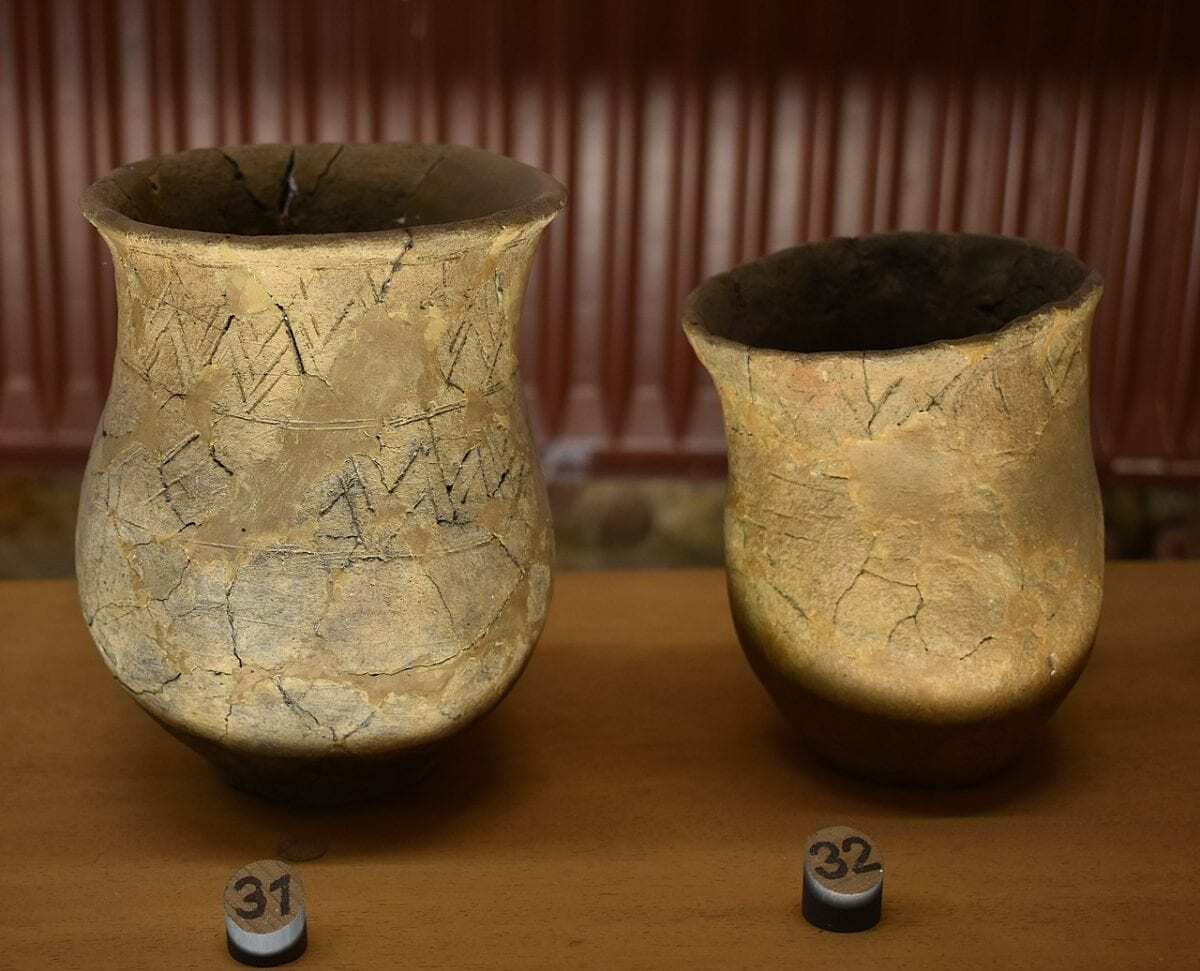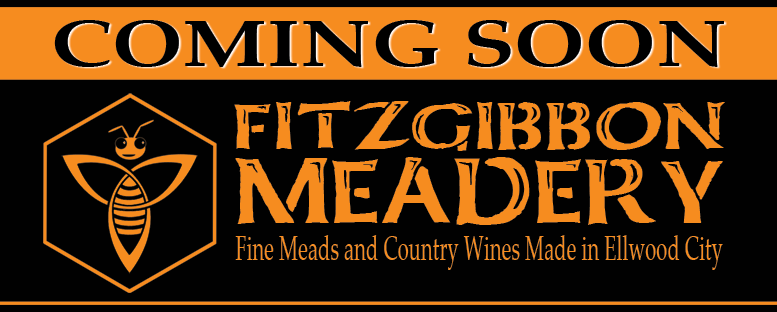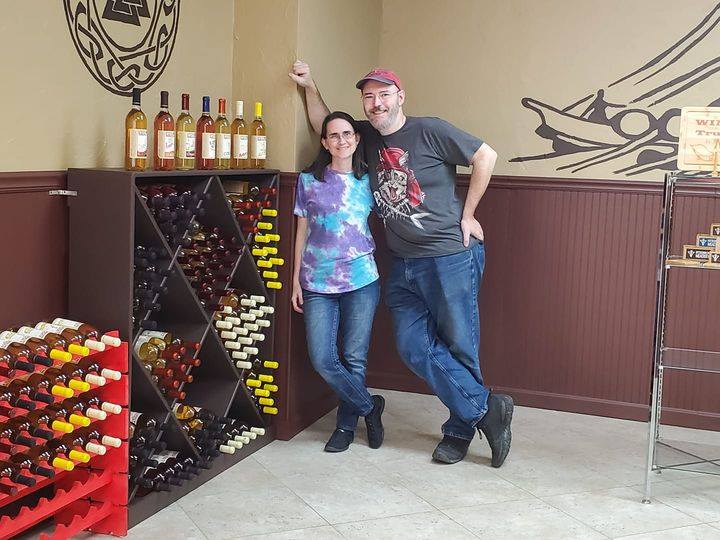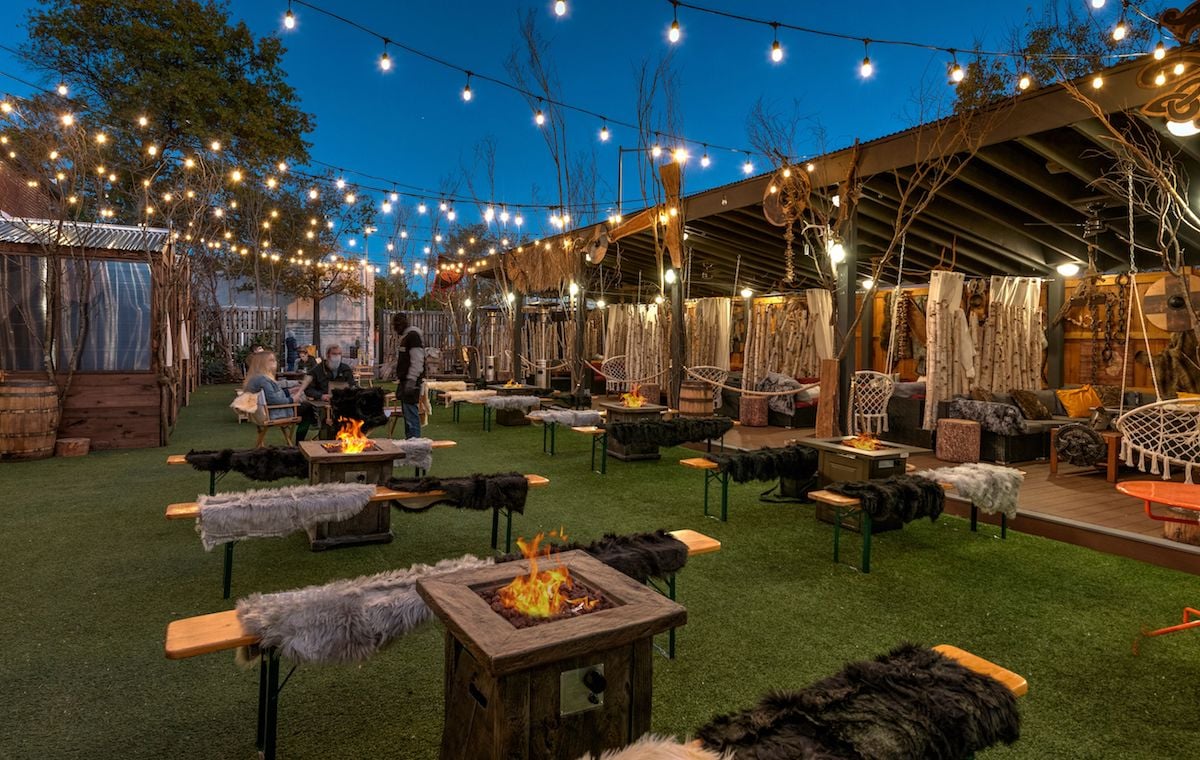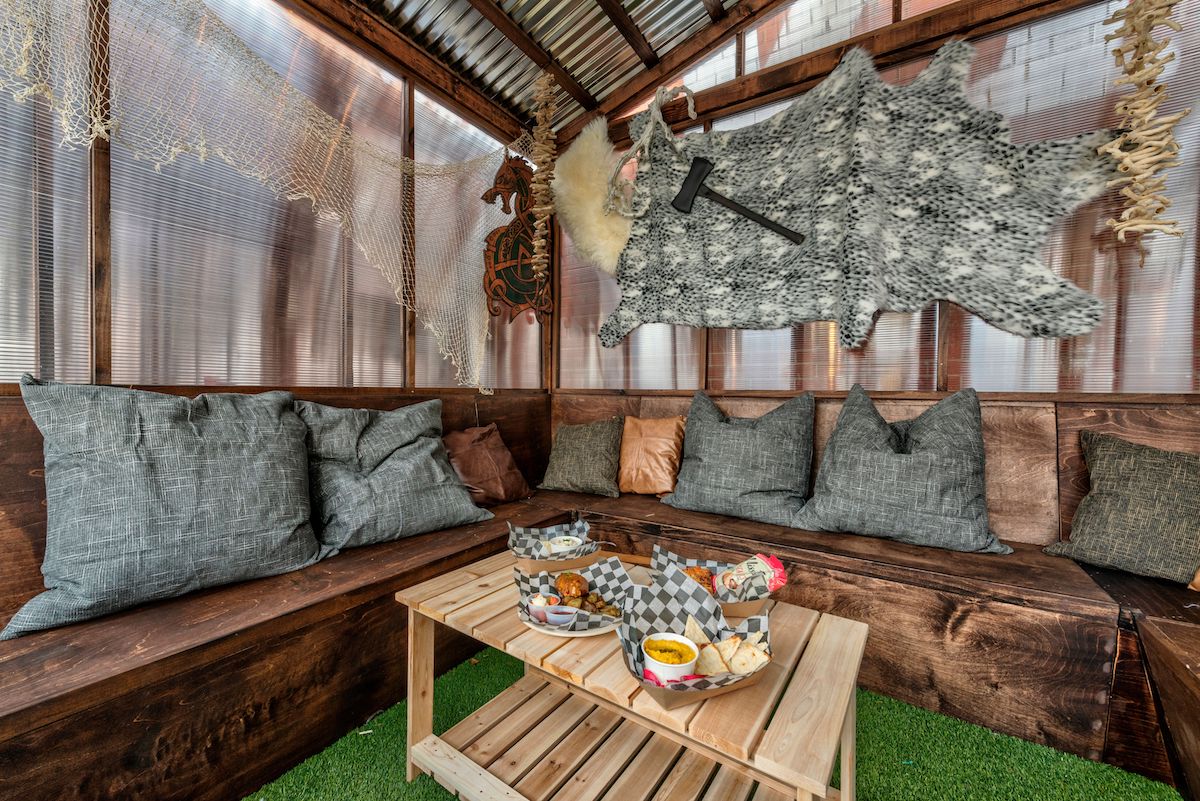From eu.azcentral.com

When Jeff and Jen Herbert bought the historic Jim Ong’s
Market building on Washington Street near downtown Phoenix, sunlight
filtered inside through cracks in the red brick walls.
The
historic building was constructed in 1928 and once served as a grocery
store for downtown Phoenix's Chinese community. Most recently, it was a
dance studio before sitting empty for years.
Now, one of Prescott's most loved and sought after drinking spots has moved in.
A
brand new kitchen has been fitted and will soon serve grilled octopus,
Greek sesame pretzels, celery root gnocchi and Ukrainian cabbage rolls.
But perhaps the most important thing on the menu is the mead, and lots
of it.
The Herberts own Superstition Meadery, an award winning producer of the ancient honey wine based in Prescott.
"When
we took the first huge step opening our tasting room in Prescott, we
entered this world of risk and we haven’t left it," Jeff said. "But
COVID introduced a level of risk that we’ve never seen."
Now, their new downtown Phoenix tasting room and restaurant will celebrate its grand opening on Nov. 7.
What is Superstition Meadery?
Superstition
Meadery started in 2009 with a gifted home brew kit in "the shadow of
Superstition Mountain," Jeff says. He fell in love with creating both
beer and mead and while finishing his career as a fire fighter, drew up a
business plan to open a brewery.
"Every home brewer dreams of one day having a brewery," Jeff says.
"And we had tried mead once at the Renaissance Fair out in Apache
Junction but we didn't know anything about it."
Jeff studied
anthropology at Arizona State University and always had an interest
in history, religion and mythology, he says, so the concept of mead
being one of humankind's oldest alcoholic beverages drew him in.
Eventually,
after much reading and research, the couple set their sights on ancient
honey wine and started making flavoured creations at a Skull Valley
winery. What started with 18 square feet of rented space and four
barrels of mead in 2011 grew to a company producing 6,800 gallons in
2016 for a downtown Prescott tasting room, a dedicated production facility and a company that sells mead around the world.
"We
never really thought that it was going to take off the way that it did
as fast as it did, it was like overnight," Jen says. "People were like
we need more, and I was like we need more space, we are going to run
out, we don’t have enough to sell. It was a frenzy so we had rapid
expansion."
Now, the company is growing again, expanding from Prescott with
a tasting room in Phoenix. The renovated space features two options for
bar side seating, one at the wall of meads and another facing the open
kitchen. A patio hugs the eastern side of the building and a merchandise
room sits at the back filled with t-shirts and bottles of mead to take
home.
Here's what's on the food and drink menus
Unlike
the original Prescott tasting room, the downtown Phoenix location of
Superstition Meadery is also a full restaurant compete with food and
mead pairings.
The Herberts hired chef Adolfo Heredia, who
previously led the kitchen at Tuck Shop in Phoenix's Coronado
neighborhood. Heredia and the Herberts worked together to recreate
dishes the couple remembers from years of travel, inspiring an
international menu.
A large portion of the menu is dedicated to
board-plated samplers perfect for pairing with Superstition's
best-selling mead flights. Boards include traditional cheese and
charcuterie options along with "Boards from the Fire," which feature
honey shrimp, tandoori pheasant and soy ginger scallops among other
options cooked on the kitchen's custom wood fired grill.
Handheld
options include tacos and a variety of sandwiches, and both warm and
cold salads are on the menu as well. For those looking to stay for a
full dinner, the international theme continues with spicy Asian skirt
steak, Catatonian fire roasted lamb and spiced duck to name a few
entrees.
Drink options include 24 meads on tap and five ciders. Flights of 12
one-ounce pours feature a variety of ciders, drier meads, semi-sweet and
sweet meads. A specialty flight will also be available, showcasing
some of the small batch and one-off options.
What to expect on grand opening day
Each
dish on the menu has a suggested mead pairing that either compliments
the dish or is intentionally contrasting to boost the flavours. And
for those who have visited the Prescott tasting room or tried
Superstition's meads before, there are plenty of new varieties coming
out.
"On
opening day we'll have at least five, maybe 10, brand new releases,"
Jeff says. "It's more new releases in a day than we’ve ever had before."
Some new releases available on opening day include:
- Pistachio Grand Cru Berry, a blend of blueberry, strawberry raspberry and blackberry meads with white chocolate and pistachio.
- Sunrise Snorkel, a blueberry coconut mead aged in French oak barrels that previously held a blackberry cherry mead.
- Aphrodisia 22 and 23, two
new batches of the meadery's Aphrodesia series. Twenty Two is made with
cabernet grapes and Arizona honey. Twenty Three uses syrah grapes and
Arizona honey. The meads are then aged for 2 years and reach over 16%
alcohol.
- Ninth Mandala, a mead made in
collaboration with Moksa Brewing Company that features raspberries,
vanilla, pistachios and caramelized honey. It is then aged in Blueberry
White barrels.
Black Rose, an Arizona mesquite honey mead aged in multiple Four Roses Bourbon barrels over three years.
The Black Rose is the longest-aged product Superstition has ever released, Jeff says, and it comes in at 20% alcohol by volume.
"It’s goosebumps, it’s insane. It’s so good," he says, excited for customers and "mead geeks" to try it.
Superstition
has also recently delved into the world of grape wine. On opening day,
the Herbert's plan to release their new orange wine made with muscat and
sauvignon blanc grapes.
"It has notes of guava and slate, it’s
nutty and oxidized, it’s tannic, it’s everything orange wine is supposed
to be," Jeff says.
"And it would be perfect with the duck," Jen notes.
Superstition's
core products Blueberry Spaceship Box cider, Tahitian Honeymoon vanilla
mead, berry flavored Marion Mead, bourbon barrel aged Lagrimas De Oro
and Desert Monsoon prickly pear mead will also be on the menu.
'To risk everything, everything is on the line'
On
top of renovating a historic building, bringing their business to a new
city and creating a new restaurant, the Herbert's have also faced the
added struggles of 2020 while working to open their new taproom.
"We did some real soul searching like everyone in the world, for lots of reasons," Jeff says. "But we never slowed down."
Due
to the coronavirus pandemic, the Herberts were forced to downsize from
29 staff members to 10 over the course of three days in what Jeff says
was, "one of the hardest things we ever had to do."
But they pushed ahead with the new location knowing that it would allow them to create jobs once again.
During the time when bars and restaurants were mandated by the state to close,
Superstition relied on online sales and to-go orders from the Prescott
taproom. They offered discounts, created a mead club and launched
cocktail kits with their products. Staff members interacted with
customers over social media and hosted tastings online.
COVID-19
posed a different set of challenges while the couple was opening the new
location. Electricians were hard to come by. Green bar stools were even
more difficult to find, Jen says. Employees at City Hall had
transitioned to working remotely, which impacted the permitting process.
"We really had to learn how to work in a new system," Jeff says. The
delays set back the opening, originally planned for the summer.
But
silver linings are abundant, Jeff and Jen agree. Now, the restaurant
will open with good weather. There are plenty of skilled servers and
bartenders to hire. And customers, at this point, know the masking and
capacity rules and are comfortable following them, Jeff says.
The
new restaurant will open at half capacity and offer seating both inside
and outside on a patio decorated with a canopy of string lights. After
such a long process, the Herberts are ready to open their doors, they
say.
"You
could probably say we are crazy for trying to do the first thing of
it’s kind in an up and coming area in the worst year that we’ve all ever
remembered. It’s crazy. But I think you have to be crazy to be an
entrepreneur," Jeff says. "To risk everything, everything is on the line
for Superstition Meadery and Superstition Downtown."
The new
business opens on Nov. 4 for a soft opening while final details of the
menu are worked out. The soft opening will continue through the week
and the restaurant will be open from 11 a.m. to 11 p.m. daily. The
Herberts plan to celebrate the grand opening on Nov. 7.
Superstition Downtown
Details: 1110 E. Washington Street, Phoenix. superstitionmeadery.com/superstition-downtown-phoenix.
https://eu.azcentral.com/story/entertainment/dining/beer/2020/11/04/supersition-meaderys-new-mead-tasting-room-open-downtown-phoenix/3681193001/
